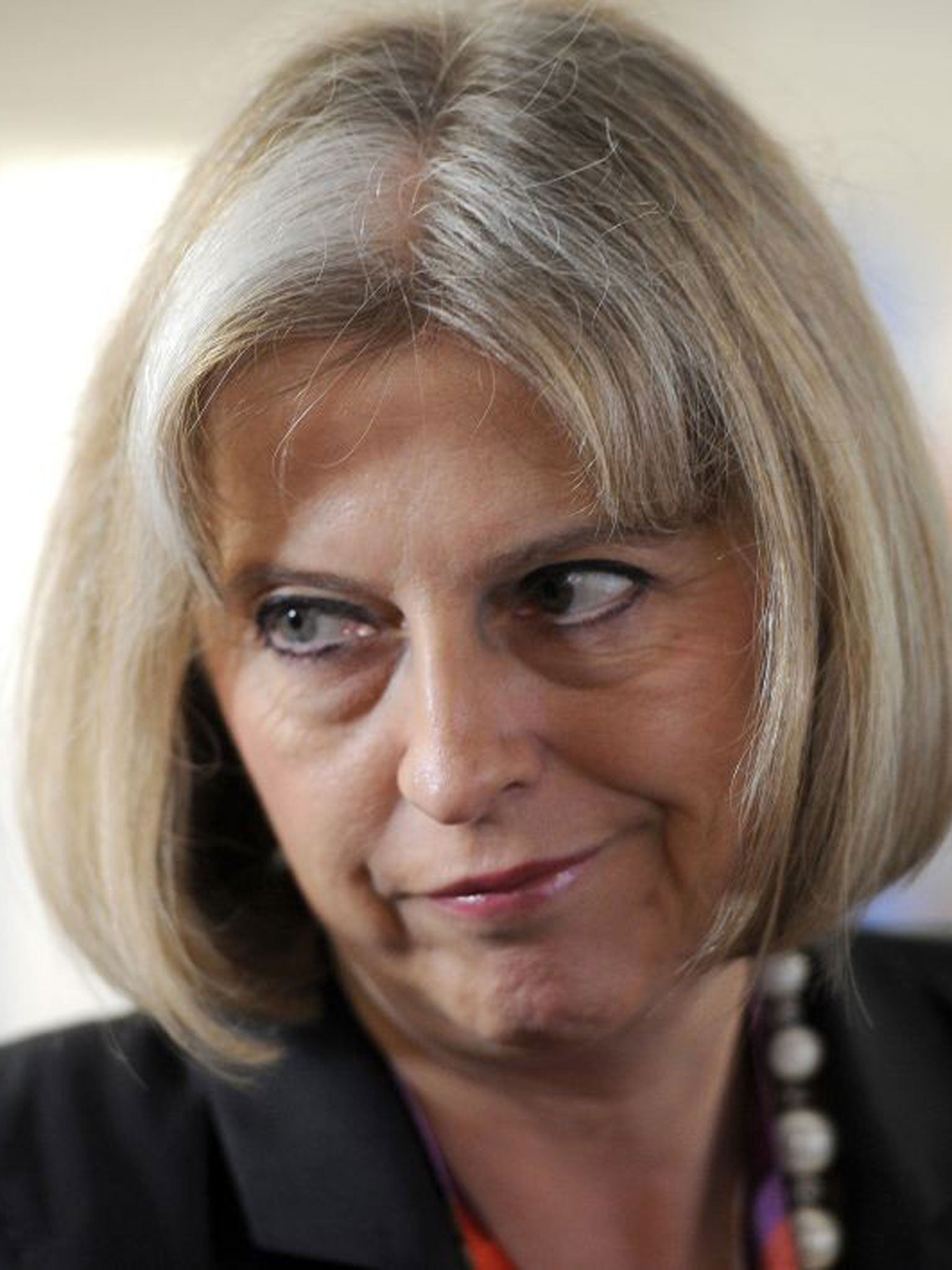Theresa May in No 10? It's not totally daft
David Cameron's position looks impregnable, but so did Tony Blair and Margaret Thatcher's. Immovable objects can vanish overnight


Plotting in politics always seems completely mad until, suddenly, something happens and before you know it Margaret Thatcher is getting into a car, eyes brimming with tears, or Tony Blair is saying, "The next party conference in a couple of weeks will be my last party conference as party leader." Until that point, they were immovable objects facing what appeared to be entirely resistible forces. Thatcher had seen off a quixotic baronet, Sir Anthony Meyer, by 314 votes of Tory MPs to 33, but then, less than a year later, she was gone. Likewise Blair had received a letter from 15 little-known Labour MPs asking him to "stand aside" and, nine months later, he was in Jerusalem.
So I would not dismiss rumours of a Conservative coup against David Cameron, though it would be silly right now. Nor do I regard the idea of Theresa May as prime minister as self-evidently ridiculous. I would, however, dismiss as implausible the claim by one of the anonymous plotters that they are now "about half a dozen names away" from the 46 letters to Graham Brady, the chairman of the 1922 Committee, that are required to trigger a vote of confidence in the leader.
All the same, a change of prime minister before the next election may be more likely than we think. Let us start with the enigmatic Home Secretary, and the unexpected front-page story in last week's Mail on Sunday: "A Great Day for British Justice". This reported that May, "supported by Mr Cameron and Justice Secretary Chris Grayling", was planning to include a promise in the Tory manifesto to pull out of the European Convention on Human Rights.
This would be a big step. We know that the Tories want to rewrite the Human Rights Act, which incorporates the Convention in British law, to try to steer British courts into interpreting it in ways they would like. The Liberal Democrats won't let them, but this is one of those cases where "blaming the Lib Dems" means "railing against the unfairness of the universe".
Even if the Tories did draw up a British Bill of Rights, people who did not get what they wanted in British courts could still appeal to the European Court at Strasbourg. If we want to define Convention rights for ourselves – and Grayling said last week that "if anyone sits down and reads it as a document they would struggle to find a word they disagreed with" – the UK would have to reject the authority of the Strasbourg Court. That, in turn, requires us to repudiate the Convention, because, as well as setting out rights with which Grayling agrees, it requires signatories to accept the Court's rulings.
Full marks to May, then, for following the logic of the party's frustration with "human rights" rulings, even if most of them have been handed down by British courts. But it would put Britain in an awkward position. Presidents Putin and Lukashenko of Russia and Belarus could say: "Even the British say that the way the Convention is enforced interferes with sovereignty." Many Tories won't like it, although its most senior opponents, Kenneth Clarke and Dominic Grieve, the Attorney General, are below cabinet rank.
So what is going on? Pulling out of an international convention drafted by British lawyers when Winston Churchill was Prime Minister seems so outlandish to some journalists that they speculated that the Mail on Sunday story had been planted by No 10 to try to discredit the Home Secretary. But a No 10 that cannot draft a factual speech for the Prime Minister without having to be corrected by the Office for Budget Responsibility is quite incapable of running a dirty tricks operation.
The story was, in any case, confirmed by May herself, speaking at a conference yesterday. She said that "all options, including leaving the European Convention altogether, should be on the table". Claiming this hard line for herself will impress Tory MPs and their voters. Already she can take credit for lower net immigration, falling crime, police reform, Gary McKinnon staying, Abu Hamza going and, also yesterday, Abu Qatada back in detention.
It is easy to imagine a scenario in which Cameron continues to lose altitude. If enough Tory MPs think they will certainly fail to keep their seats if he leads them into the election, the attraction of a comprehensive-educated, Thatcher-like alternative who is tough on crime is obvious. Her opinion poll ratings are poor at the moment, but as a new prime minister she might enjoy a honeymoon that would make the election competitive.
Already the media climate is changing in her favour. The appointment last week of Tim Montgomerie, editor of the Conservative Home website, as comment editor of The Times was significant. Montgomerie has long been a critic of the Prime Minister, advocating "blue-collar" Conservatism. And Rupert Murdoch's dinner last week with Nigel Farage, the leader of Ukip, was a snook of imperial displeasure in the direction of No 10.
All May needs is a populist economic policy, such as the mansion tax supported by Montgomerie, proposed by a comprehensive-educated chancellor such as Philip Hammond, to distance her from the posh boys, and a continued exodus of British citizens to keep the net immigration figures down. Then she would be a credible vote-winning proposition.
I am not saying it is likely, mind. But it is not impossible.
Join our commenting forum
Join thought-provoking conversations, follow other Independent readers and see their replies
Comments